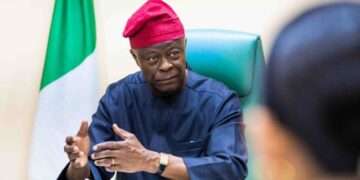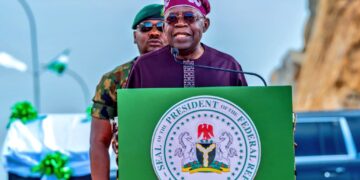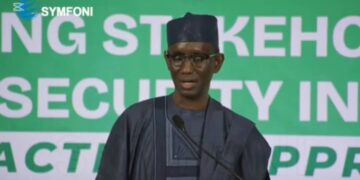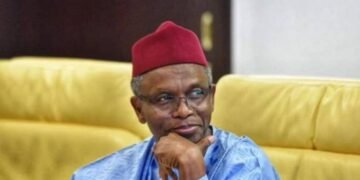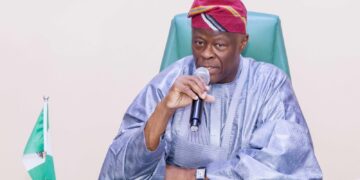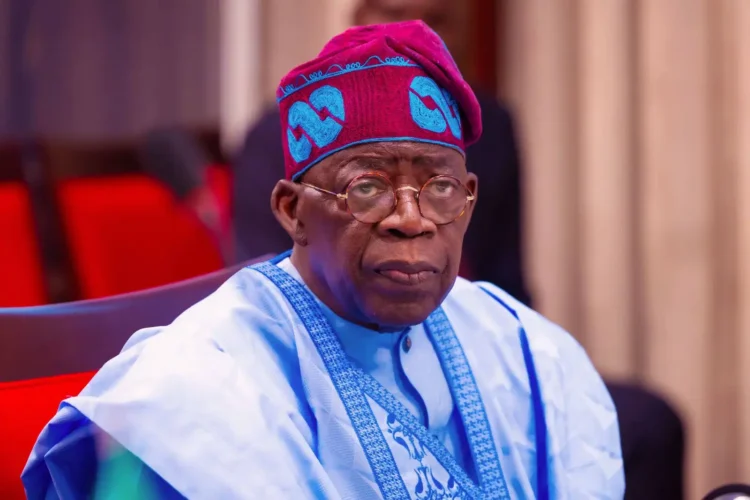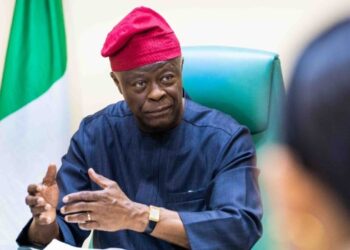By Kunle Oyatomi
It wasn’t an easy effort for those who came back from an assessment visit to the elephant. Each returnee had something different to say about the animal. All one had to say of the mammal was that it had large ears. Others claimed the big creature possessed equally big legs that made the ground shake each time it moved. No, contradicted another, the elephant had a huge backside that blocked your view of its size. Still more: the behemoth had a trunk with an extended nose; there was a mouth ready to drink up a river; the beast could stamp a car into a small piece of scrap etc.
The point is that these observations were all in order about Papa Elephant. The problem the observers had was that the animal was too large to be captures from a single angle. So, as they individually viewed it from a stationary DSS angle, they concluded that was the only world of the great creature. How wrong they were!
And how wrong we would also be if, as we look at the first anniversary of Bola Tinubu’s Presidency, we allow ourselves a myopic view that doesn’t take in all his policies as he sets the stage for a promising future. We would be missing the fun if all we listen to is the jaded criticisms of the likes of former Vice President Atiku Abukakar. He is still a one-sided figure who can’t accept that he has missed the train taking Nigeria beyond where he left it battered years ago.
Before Tinubu, we were not talking of a huge coastal highway linking Lagos to Calabar and passing by some nine shoreline states with accompanying massive construction works creating numberless jobs for our fledgling economy. A year after, Tinubu’s administration is in the process of giving us Africa’s first superhighway. That’s the future. But critics are, unfortunately, stuck only in yesterday and today, refusing a bold attempt to use the challenges of the present to grab the possibilities of tomorrow.
For the first time in the history of Nigeria, we’re going to be having one single project integrating with existing federal roads, promoting economic and social development across the country in addition to the integration at the national level for southwest, southeast and south-south, plus the Niger Delta region. Clearly, the Lagos-Calabar Coastal is beyond a one-off affair; it is an all-time composite template for the unification of the people of our federation. With this delivery by Tinubu, we can no longer talk of Nigeria agonizing under a weak infrastructural deficit.
There have been other moves by the Tinubu Administration that suggest a new dawn for the country. The Nigerian leader has interacted with foreign partners who, noticing his reforms, have keyed into his vision to incentivize investors in the oil and gas department of our economy. A directive Tinubu signed in February 2024 to engender growth in the oil sector is already attracting about $10b investments in the system. Finance Minister, Wale Edun, said of the initiative: “The idea is to create an atmosphere conducive to international competitiveness such that investment comes…We know it’s foreign direct investment.’’
Also in the past one year, we have seen steps taken by the Tinubu government to overcome the effects of the inevitable removal of the fuel subsidy. The president launched what he called the Presidential CNG Initiative in October 2023, promising that the project was ‘’part of the many intervention programmes to reduce the burden of increase in pump price on the masses.’’ The CNG Initiative is thus to deliver cheaper, safer and more climate-friendly energy. Its goal is to launch into the market compressed natural gas especially for mass transit.
The central government promptly budgeted N500b palliative fund for the plan. Under it, 5500 CNG vehicles, (buses and tricycles), 100 electric buses and over 20000 CNG conversion kits will be purchased. From the end of May when he will be marking his first year in office, Tinubu will lead Nigeria into his the league of nations with fleet of CNG vehicles. Such countries include India, China, Brazil, Argentina, Pakistan, Italy, and Iran.
In addition to helping the masses through CNG, Nigeria would also be bringing down levels of air pollution as this is caused by the emission of gasoline and diesel engines. This is responsible for the depletion of the ozone layer, which nature provides for man’s protection.
Tinubu has also been quite protective of the civil service. He has been receptive of progressive reforms ensuring worker-friendly incentives like pay rise, prompt payment of pensions and gratuity and job security for government employees without anxieties about fear of mass retrenchment. His government has put in place a series of committees working out a new minimum wage, policies for rapid promotion, retirement benefits with a human face etc.
The federal authorities have also addressed the vexed insecurity issues. More police personnel are being recruited with a programme to kit the Force with advanced crime-battling weapons and technology. Government is also improving their morale to rhyme with modern techniques in addition to exposing them to intelligence-gathering models of taming insecurity. To be sure, while we hope to enjoy some of the positive outcomes now, in a year or two we should get into a paced gear in outsmarting the society’s crime rate.
With the various forward-looking economic reforms in place over the past one year of the Tinubu Administration together with a radical approach to taming insecurity nationwide, the experts are forecasting a turnaround for Nigeria. According to renowned global credit agency, Fitch, there’s now a ‘’positive outlook for Nigeria, Africa’s largest economy with a GDP of $477.38 billion.’’ The agency attributes this forecast in part, to Tinubu’s ‘’recent reforms focused on reinstating macroeconomic stability and bolstering policy coherence and stability.’’ It advances the argument that the government’s moves ‘’have mitigated distortions arising from past unconventional monetary and exchange rate policies.’’ This, Fitch concludes, is ‘’resulting in significant inflows returning to the official foreign exchange (FX) market.’’
Nevertheless, these welcome prospects have thrown back to us inevitable challenges. Can you have omelets without breaking eggs? These problems are short term, however, which are typical of reforms that are necessarily introduced to deal with age-old problems left to fester by previous governments. Tinubu is boldly handling them to save us from the larger evils they would pose in the future. He needs our support and prayers to sail through in more years of his tenure, only one year of which he has much to boast of.
Oyatomi Esq. is a member of Independent Media and Policy Initiative, IMPI, Abuja.

